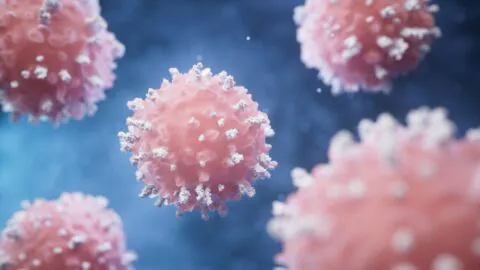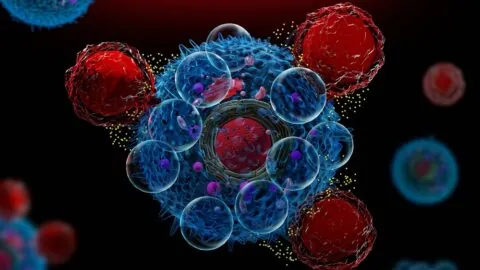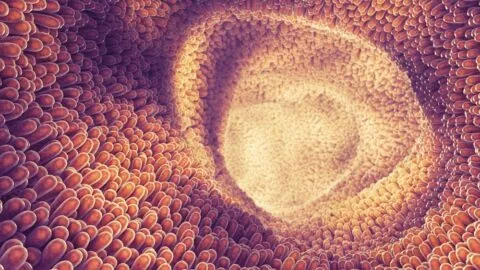February 12, 2026
A team of researchers has biologically engineered T cells with currently available Alzheimer's drugs in order to directly attack the characteristic amyloid plaques of Alzheimer's disease. Building on the current paradigm Most Alzheimer's treatments used in the clinic are -mabs, monoclonal antibodies that are designed to attack the amyloid beta plaques that accumulate in the...
December 04, 2025
In Nature Aging, researchers have published their finding that targeting urokinase plasminogen activator receptor (uPAR), a senescence-associated protein, restores gut function in mice. One way the gut lining ages Of all the tissues in the human body, the intestinal epithelium, which lines the gut, replaces its cells most quickly [1]. This self-renewal diminishes with aging...
November 18, 2024
Researchers publishing in Nature have reported a new advance in developing chimeric antigen receptor (CAR) T cells to fight solid tumors in the brain. A difficult endeavor CAR T cell-based therapies are normally discussed in the context of blood cancers, as getting them to effectively attack solid tumors has proven very difficult, despite intensive research...
July 12, 2024
By making NK cells insensitive to tumor-secreted TGF-β, scientists have improved their efficacy against this deadly hepatocellular carcinoma (HCC) [1]. Liver cancer and TGF-β Cancer cells, which are supposed to be vulnerable to the immune system, develop various defensive mechanisms to avoid detection and decrease immune cells’ fitness and viability. In solid tumors, the dense...
April 03, 2024
Scientists have demonstrated that CAR T cells can be employed against senescent intestinal stem cells, improving regeneration and ameliorating age-related symptoms such as “leaky gut” [1]. Cell-on-cell warfare Cellular senescence is a heterogeneous phenomenon in which cells stop dividing and malfunction, driving up inflammation. While senescent cells play a positive role in certain contexts, such...
February 13, 2024
Scientists have found that giving CAR T cells a particular oncogenic mutation greatly improves their efficiency against blood and solid cancers [1]. Less than cancer One reason why cancer is so dangerous is that oncogenic mutations boost cancer cells’ survivability, just like a genetically modified monster in a sci-fi movie. When T cells go haywire...






